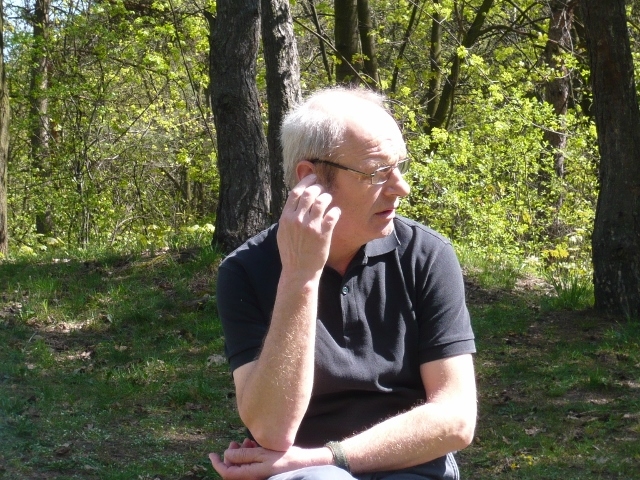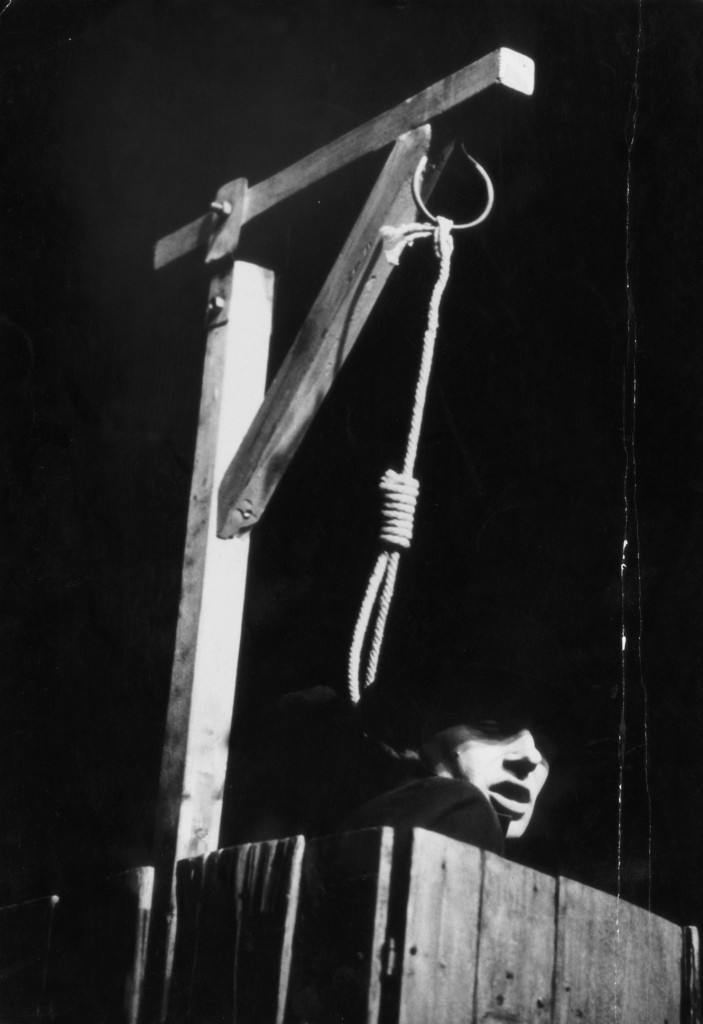Dressing Room
Date: 17–28 September 2013
Venue: Cricoteka Archives, ul. Kanonicza 5, Kraków
Facilitator: Roman Siwulak
Capacity limit: 10 participants
Public performance: 28 September, 6 p.m.
The starting point for the exercises is the actor’s dressing room. The dressing room is a place in the theatre where the private life of the actor ends and his stage life begins. A transitional and temporary place. The place of transformation from a private person into an actor and from an actor into a stage character or a role in a drama. It is this transitional, transformative state that will be of our interest and subject to analysis.
It is accompanied by a whole ritual of behaviours, established customs and unwritten rules of interdependence, such as practices related to undressing and putting on make-up, the whole process of transformation into a stage character when the whole body is in the course of external metamorphosis while the thoughts still remain in the real, private or social world. Hence the private conversations entirely unrelated to what will happen next. Crude jokes, making fun of colleagues. Various jokes, mostly lowbrow. Obscene, vulgar language, contrasting with the high quality literary language of the drama and poetry, which is learnt by heart and will soon be presented with mock depth, emphasis, and all the virtuoso tricks associated with acting.
Further, there are open or hidden conflicts, jealousy, envy, strife, various dirty tricks to harm the competition on the stage. All this “acting folklore”, which is usually carefully hidden from the outside world.
This is one of the aspects of the theatre backstage, which can be an interesting material for analysis and inspire an attempt to translate it into the external language of the stage. But there is also a whole range of other behaviours, rituals, superstitions related to the metamorphosis from one’s private to stage life. Various voice exercises, repeating texts. Joint dialogue rehearsals to remember it better. Different concentration techniques before going onto the stage. Meditation, breathing exercises. These are all individual behaviours, developed by the actors over the years of theatre practice. Some do it in silence, in secret, hiding in the corners. Others, on the contrary – can be hyperactive, garrulous and a nuisance to others. Some find peace in alcohol. There are those in need of arguments and clashes. A separate phenomenon is the make-up preparation, putting on costumes. Narcissistic glances at the mirrors. As if seeking confirmation from oneself. Sham poses, facial expressions hidden from others or on the contrary – conspicuously shown off. Hysterical behaviour resulting from stage fright. Related to stress, which is part of this profession. Fear is one of the most important motivations in this line of work. The fear of making a mistake in the text, in action, fear of forgetting something. To enter the stage at the right time. To do well in your own eyes, etc.
The workshop would constitute an attempt to identify the phenomena associated with the dressing room, to name them and raise awareness of how important they are for an actor and what impact they have on his art and more broadly – on the entirety of the show.
The workshop will be a joint journey towards describing these elements of “acting folklore” in an atmosphere of fun and discovery of the group’s acting abilities resulting from this entire process of transition from a private person to a drama character, made up of a whole series of small steps, trivial, mundane, irrelevant from the point of view of the stage character, but still interesting and potentially constituting a source of unexpected results, clashes, and extremely theatrical situations.
Roman Siwulak
The workshop will be conducted in English and Polish.
Roman Siwulak, born in 1952 in Krakow, painter, actor, educator, graduate of the Academy of Fine Arts in Krakow, active in a variety of creative disciplines. From 1970 he was a member of Tadeusz Kantor’s Cricot 2 Theatre, taking part in all the Cricot 2 productions until 1992.
From 1994 to 2001 he cooperated with French theatres. He took part in performances: En passant based on Nietzsche’s Zarathustra and Barbe Bleue by Georg Trakl in Compagnie Singuliér (1994-98). In 1999 he ran workshops and directed a performance entitled Magellan in Théâtre du Radeau in Le Mans. In 2000, he participated in preparations for the production Mine of the Adequate Theatre in Le Mans and in 2001 he co-directed the play Les Clowns in the Circus Klotz theatre.
He was a lecturer at:
– Milano Scuola Dramatica di Paolo Grassi, producing a diploma performance based on Witkiewicz’s play They (Milan, 1993);
– Scuola Internazionale di Musicisti per il Teatro in Centro teatrale La Corte Ospitale, where he facilitated workshops (Rubiera, 2008);
– Conservatorio Vivaldi Instituto di Alta Formazione Musicale, where he also facilitated workshops (Alessandria, 2009);
– Centro Aggregativo Apollo 11 – Esquilino Young Orchestra. As part of an art/social programme aiming at cultural integration of immigrants, he organised workshops and a performance with children (Rome, 2010).
Since 2000, a member of the Italian group Orchestra Teatro di Moni Ovadia:
Il banchiere errante (2001), Il Violinista sul tetto, (2002), L’Armata la Cavallo (2005), Le storie del Signor Keuner (2006), Shylock Il Mercante Di Venezia
In Prova (2011). Linked to Italy though his work as a director and participation
in the performance Omaggio a Kantor at Mittelfest Festival in Cividale in 2005 and in the production for the Festival della Mente in Sarzana in 2008.
His paintings were displayed in solo shows in the Krzysztofory Gallery, Otwarta Pracownia in Krakow, Foksal Gallery in Warsaw as well as in collective exhibitions including: Polish Avant-Garde from 1910 to 1978 in Palazzo delle Esposizioni (Rome, 1979), Fifth Exhibition of the Collection of the Małopolska Foundation for the Contemporary Art Museum in Cricoteka (Krakow, 2008) and the exhibition in the Gallery of the Academy of Fine Arts in Krakow (2012).

Roman Siwulak

Tadeusz Kantor, “I Shall Never Return”, Cricot 2 Theatre, 1988, Roman Siwulak, photo Caroline Rose

